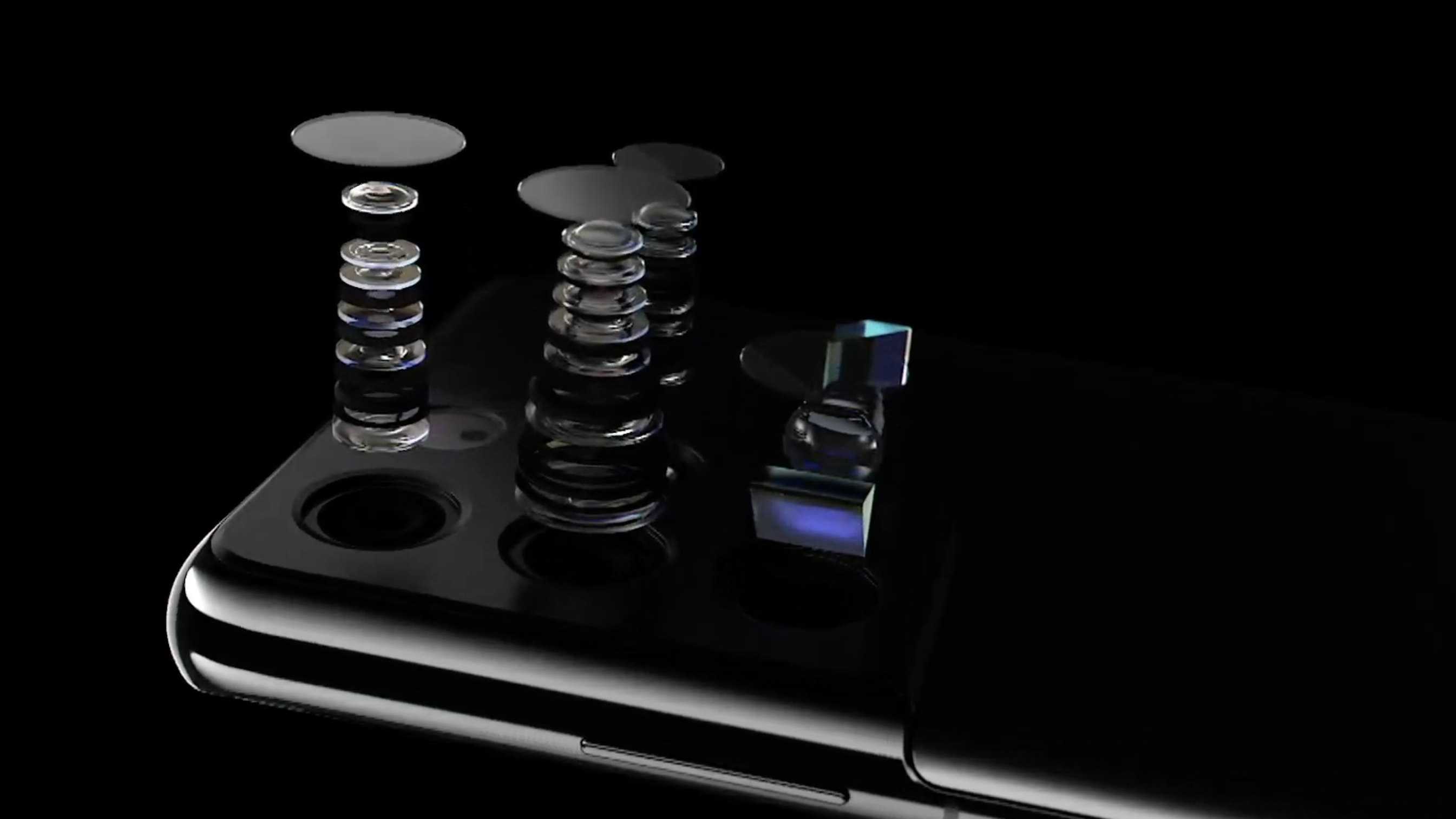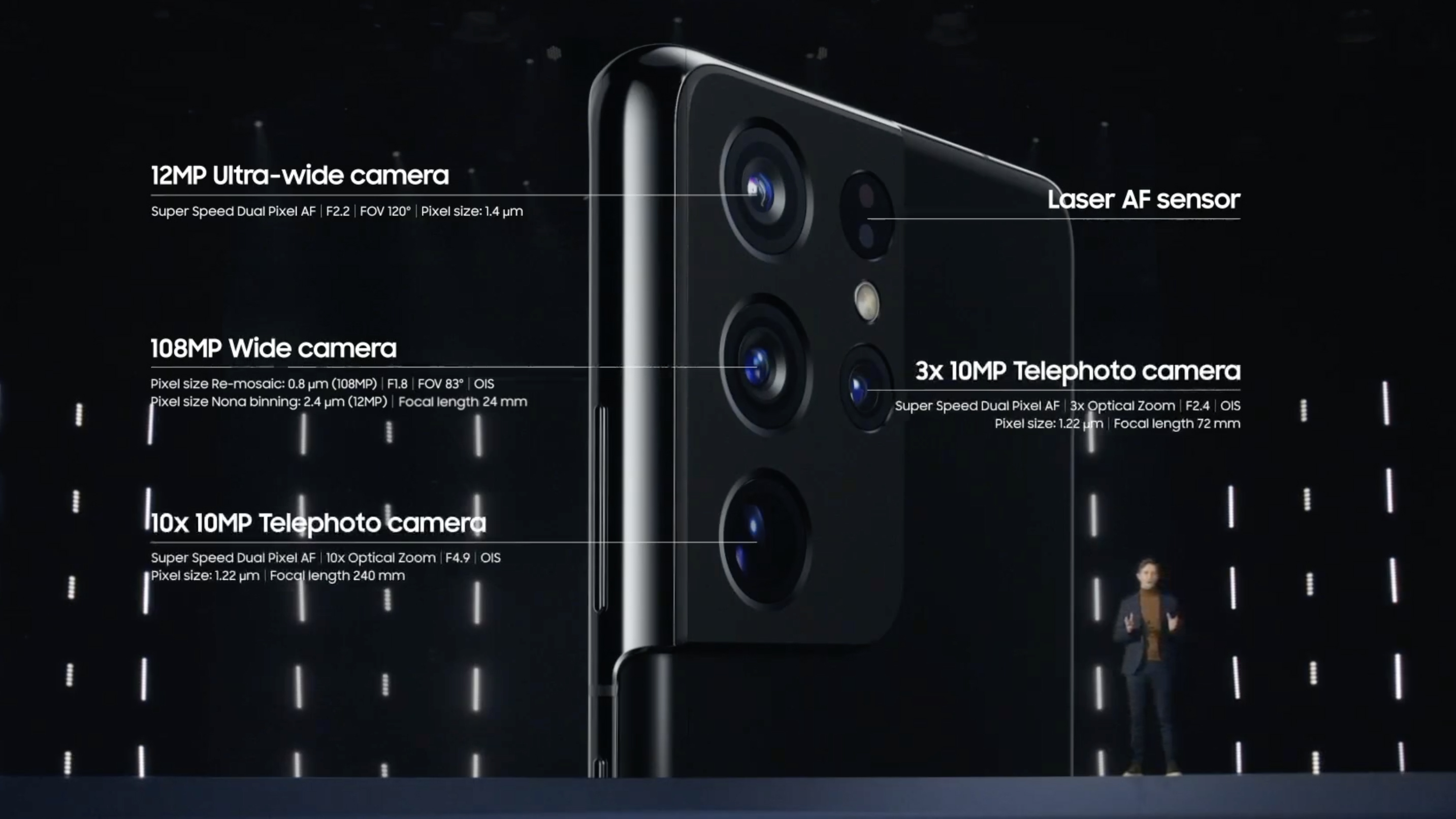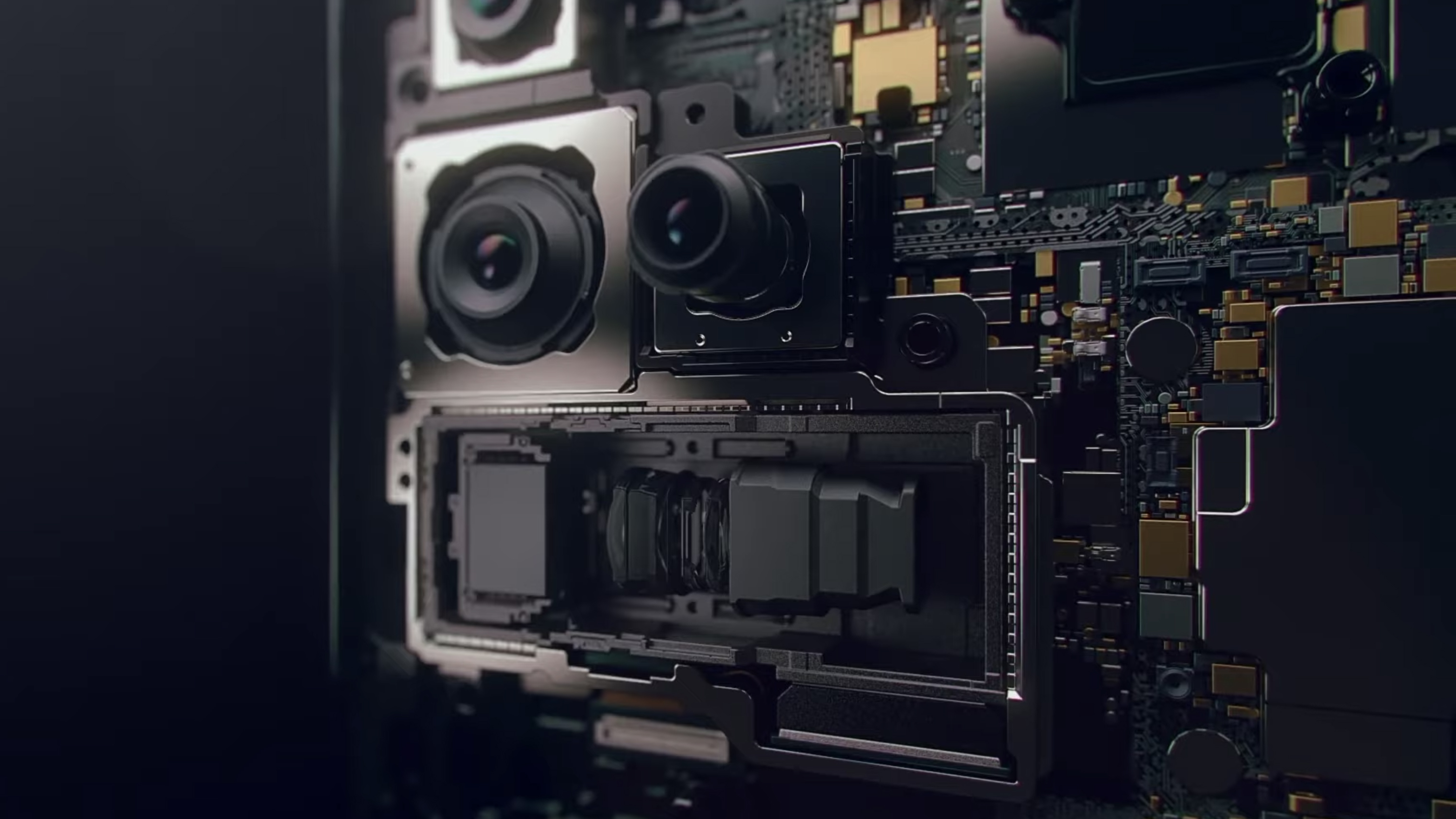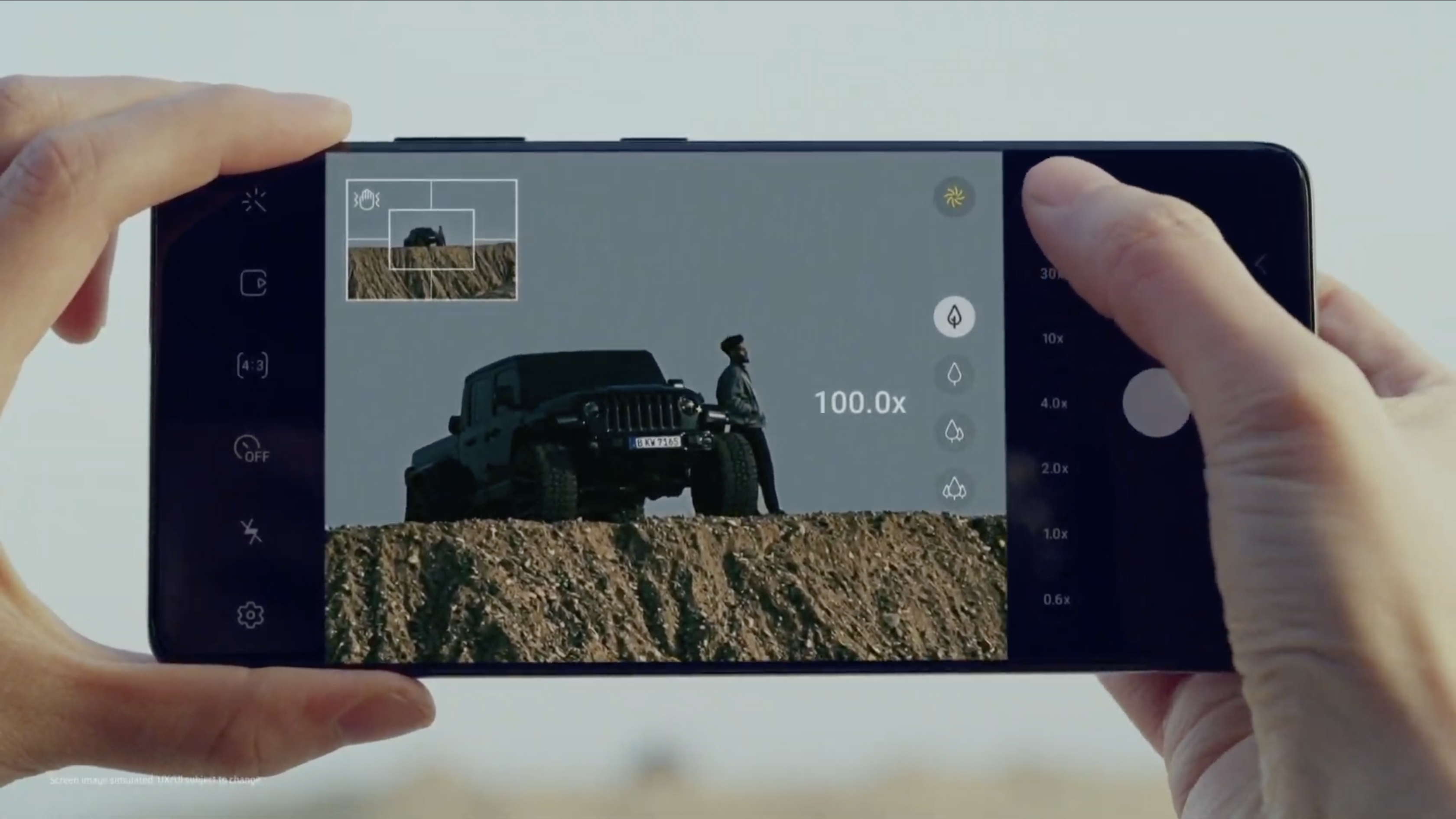The Samsung Galaxy S21 Ultra launch spent a painful three minutes gushing about its "unforgettable" black paint job, but the phone's new telephoto cameras were the real stars – and they're an important upgrade that proves zoom is going to be this year's battleground for the best camera phones.
Yes, we had the 'Space Zoom' gimmick at last year's S20 Ultra launch. But this time we're talking about genuinely useful optical zoom. Like the Huawei Mate 40 Pro Plus, the S21 Ultra combines two dedicated telephoto cameras – one offering 3x zoom, the other 10x zoom.
And the result could, in theory, be the best zoom experience we've seen on a smartphone so far.

This is exciting because zoom is about much more than just being able to snap distant skylines. Having two cameras with dedicated telephoto focal lengths in your pocket is, as we'll discover, a creative bonus that makes phones feel more like DSLRs or mirrorless cameras. For photographers, this is way more interesting than a 108MP sensor that was, as I argued last year, never really the Samsung Galaxy S20 Ultra's real headline feature.
No, the Samsung Galaxy S21 Ultra isn't the first smartphone with a 10x periscope lens (that was the Huawei P40 Pro Plus) or the first to come with dual telephoto cameras (see the Xiaomi Mi 10 Ultra and Vivo X50 Pro Plus).
But it is the first time we've seen it land on a flagship from the world's biggest smartphone manufacturer – and that's a big moment that puts the photography ball firmly back in Apple's court.
- These are the best camera phones in the world right now
Getting closer
If you missed the Galaxy S21 Ultra launch, here's a quick recap of its camera upgrades. On the back, it now has a total of four cameras. The top two – a fairly standard 12MP f/2.2 ultra-wide and main 108MP f/1.8 camera – are largely the same as the ones we saw on last year's S20 Ultra.
But flanking that main camera are those interesting new telephotos. To the right we have a 10MP f/2.4 camera with a 72mm equivalent focal length (in other words, 3x optical zoom) and below that there's an impressive 10MP f/4.9 camera with a huge equivalent reach of 240mm (or 10x optical zoom).

Why are these, in theory, a big deal for photographers? It mainly comes down to the difference between digital and optical zoom. Digital zooms are really a simulation of optical zoom lenses, which work by physically bending the light to a focal point on the sensor, like magnifying glasses. This is what gives each lens its native focal length, for example 50mm.
Digital zooms have improved a lot on smartphones in recent years, thanks to techniques like Super Res Zoom pioneered by the Google Pixel 3. But many phones still achieve their 'telephoto' reach solely by using digital techniques like cropping or pixel binning from high-resolution sensors. And these generally produce inferior quality compared to dedicated telephoto lenses.
Having a two dedicated telephotos at useful focal lengths like 72mm and 240mm, then, is a big step up. But before we get too excited, there are a few caveats.
The limits of phone zoom
Firstly, some digital 'simulation' will naturally be unavoidable when you're zooming between the S21 Ultra's cameras, because phone lenses don't have moving glass elements. In a real zoom lens, these move back and forth to change the focal length.
The pesky laws of physics also mean that telephoto cameras, like the ones on the S21 Ultra, have significantly smaller sensors and slower apertures than the main camera.
That's the case again on the S21 Ultra. The photosites (or pixels) on both the 3x and 10x zoom cameras are half the size of the 2.4-micron ones you get in the main camera's default 12MP mode. And their lens' apertures are respectively f/2.4 and f/4.9, which means they let in significantly less light than main camera's f/1.8 lens.

The result? You'll probably only be able to get good results from these zoom lenses in daylight, and the 10x optical zoom with a ton of available light. Yes, night mode might be able to help, and the S21 Ultra's double-folded 'periscope' lens is technically very impressive. But the sensor sizes and apertures will be a bottleneck on the quality you can expect.
These challenges, which are a struggle even for the Galaxy S21 Ultra's bespectacled 'Phantom Black' scientists, mean it's not uncommon for smartphone zooms to secretly switch to their main sensors in low light and digitally crop the image from there, rather than use their telephoto cameras. This has been the case on iPhones for a while, and it'll be interesting to see if the Galaxy S21 Ultra does something similar.
- Check out the best photo editing apps you can download right now
Pocket bridge camera
Now we've set some expectations, it's time to get excited about the possibilities of the S21 Ultra's two dedicated telephoto cameras again. How might they actually help in real-world shooting?
Telephotos generally bring to mind wildlife photographers in bird hides, but on a smartphone they bring a couple of benefits for everyday shooting. The S21 Ultra's mid-range 3x zoom, for example, will be more like having a prime portrait lens in your pocket.
Portrait photographers generally favor 85mm prime lenses and the 72mm equivalent focal length of the Galaxy S21 Ultra's 3x zoom camera could work nicely for this kind of shooting. Last year's S20 Ultra only had a single 103mm telephoto, and that camera had a smaller sensor and more limited PDAF autofocus than the S21 Ultra's two new telephotos (which both promise the superior Dual Pixel AF).

In good light, that 72mm lens should also be helpful for simply getting more creative with your shooting. Rather than capturing the entire scene in front of you, the tighter field of view forces you to really think about framing and composition. This is a technique that's often suggested to beginner photographers to help them improve.
What about the longer 240mm lens? As we've mentioned, this will be a more niche affair, but it won't just be for snapping distant hills and buildings. It could be a handy way to get more natural bokeh (or background blur) than the digitally simulated kind you get in Portrait Modes.
At longer focal lengths, your depth of field tends to decrease – so if you're shooting small objects using the S21 Ultra's 10x optical zoom, it could well serve up some lovely smooth bokeh and falloff that will be reminiscent of a mirrorless camera or DSLR. That's something we're looking forward to trying out.

The long view
If the S21 Ultra manages to deliver on these theoretical benefits – and fixes some of the exposure and autofocus issues we encountered on the Samsung Galaxy S20 Ultra – then it should challenge the Huawei Mate 40 Pro for the title of our best camera phone.
Of course, the Space Grey elephant in the room is Apple. It's never showed any interest in fighting the megapixel war, preferring to keep its camera sensors at a 12MP resolution. But the iPhone 12 Pro Max's 2.5x optical zoom suddenly looks pretty paltry and Apple will likely need to respond.
It's highly likely that, somewhere in Apple Park, engineers are beavering away on the iPhone equivalent of the S21 Ultra's periscope zoom. No doubt it will come billed as "a breakthrough smartphone telephoto called HyperZoom". But according to the latest rumors, that won't arrive on the iPhone 13 – in fact, it may not be ready until 2022 or even 2023.
This means the zoom war, which is the more interesting successor to the megapixel war, is likely only just getting started. We're looking forward to testing the Samsung Galaxy S21 Ultra to find out just how big a headstart it has.
- Head to our hands-on Samsung Galaxy S21 Ultra review
Comments
Post a Comment